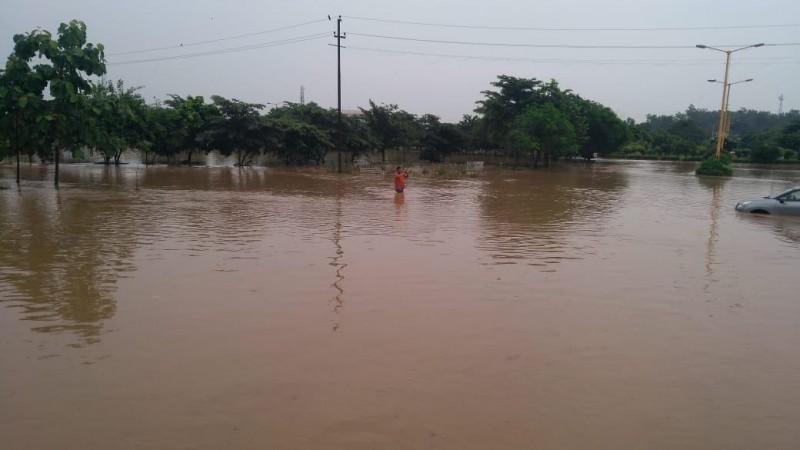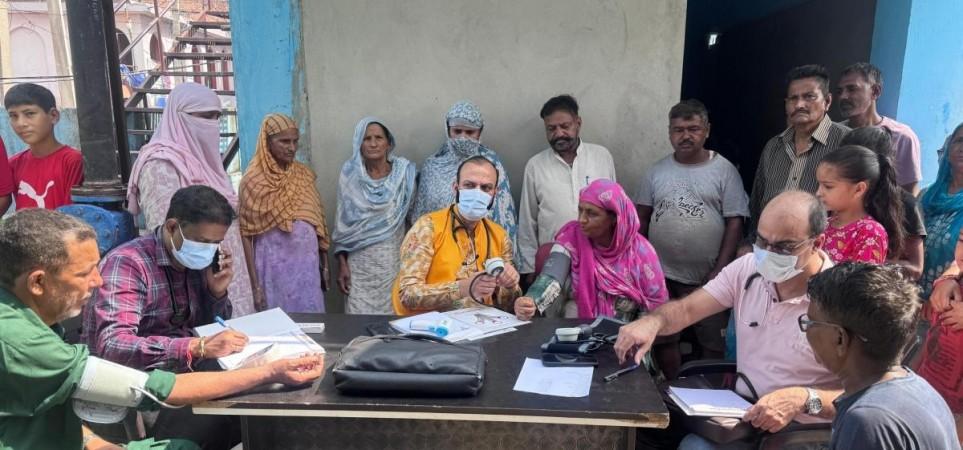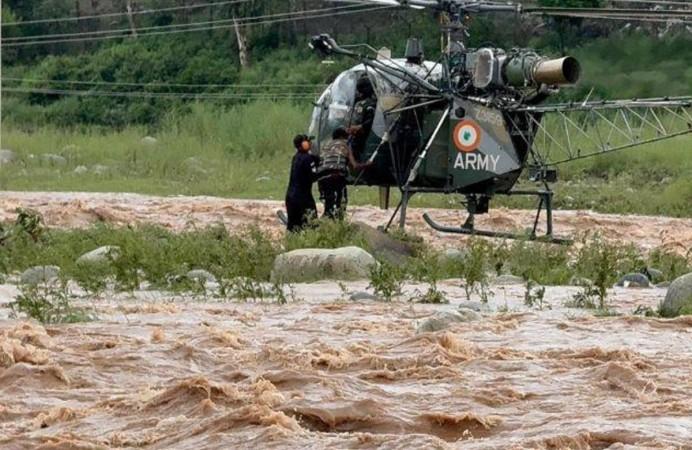
The recent floods in Jammu province have not only caused massive damage to property and life but have also had a profound impact on the mental health of those affected by nature's fury across the region.
During a medical checkup organized by Dr. Sushil Sharma, Head of the Cardiology Department at Super Specialty Hospital, Jammu, a large number of people were diagnosed with cardiovascular problems. The camp was held at Rajiv Colony in Jammu city, one of the worst-affected localities during the floods in the last week of August.
The incessant rainfall, followed by devastating floods in different parts of Jammu province, wreaked havoc as more than 170 people—including devotees of Mata Vaishno Devi and Machail Mata—lost their lives in August alone. The catastrophe also left hundreds homeless, with a large number of houses destroyed.

"Apart from visible mass destruction, there are invisible impacts of the floods in the form of diseases. Floods' hidden impact on human health, especially cardiovascular health, often goes unnoticed," Dr. Sushil Sharma told International Business Times.
"The physical, emotional, and environmental stresses associated with floods significantly increase the risk of cardiovascular problems, which persist both during and after the disaster," he said, adding, "Floods are among the most devastating natural disasters, causing widespread destruction, displacement, and disruption of life. While the immediate consequences are visible in the form of property damage and loss of life, the hidden impact on human health is equally significant."

Floods' aftermath: Affected families suffering from chronic stress
During the medical camp, Dr. Sharma and his team observed that the majority of flood-affected families were suffering from stress-related issues.
"Floods expose individuals to acute and chronic stress. The intense fear, uncertainty, and trauma of losing home, livelihood, or loved ones increase sympathetic activity in the body," he said, adding, "This stress response can trigger high blood pressure, arrhythmias, and even heart failure in vulnerable individuals."
He further explained that for people with pre-existing heart conditions, this added stress worsens their condition and complicates long-term management.

"Natural disasters like floods increase the incidence of acute cardiovascular events such as heart attacks and strokes. Sudden emotional stress, combined with limited access to emergency medical services, raises the likelihood of fatal outcomes," he said. "Studies have shown that hospitalizations for heart attacks rise in the days and weeks following floods, highlighting the strong link between environmental stress and heart health."
Dr. Sharma also underlined another critical issue: the breakdown of the healthcare infrastructure. Floods often damage roads, hospitals, and pharmacies, disrupting access to essential medicines and treatment.
"Patients with chronic cardiovascular conditions such as hypertension, coronary artery disease, and heart failure are particularly vulnerable when their regular treatment regimens are disrupted," he said, adding, "Missing doses of crucial medications like antihypertensives, antiplatelets, or diuretics can quickly destabilize patients' conditions."
He stressed that "the cardiovascular consequences of floods don't end when the waters recede. Psychological stress, lack of stability, and exposure to environmental hazards like mold and pollution continue to affect people for months. Post-traumatic stress disorder (PTSD) and chronic anxiety further put persistent pressure on the heart, increasing the disease burden long after the disaster."

















